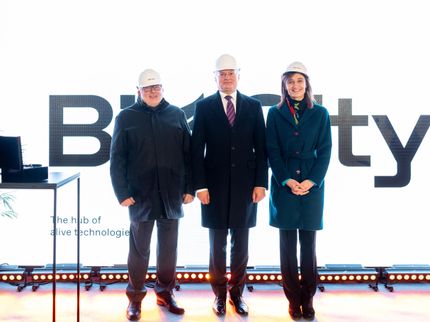California´s Biotech Community Discouraged That State Budget Offers No Life Sciences Plan
Advertisement
A bipartisan coalition representing California's life science community is disappointed the new state budget will not include tax incentives for life science companies looking to manufacture drugs and products in the state, a benefit to the state at no cost that could help ensure these jobs and businesses stay in California.
While California is home to two of the largest clusters of life science companies in the world, there is increasing competition from regions around the world trying to attract these clean, high paying jobs as the industry matures. Many cities are offering free land and large tax incentives to take these jobs from California.
"While we understand the difficult situation the state budget has been in, manufacturing credits will result in good jobs that won't be moved out of California," said Joe Panetta, president and CEO of BIOCOM, the southern California life sciences trade group that sponsored the legislation. "The state needs to help our research and development-based small businesses be able to manufacture their drugs close to their research headquarters any way they can."
The legislation, Assembly Bill 2230 and Senate Bill 1572, provides a tax credit for expenses associated with building biotech manufacturing facilities within California, helping life science companies at no outright cost to the state.
"We're faced with some critical decisions. California can continue to capitalize on its 30-year investment in R&D and expand into the production line, or it can opt out of the downstream investments this industry makes and simply benefit from continued discovery," said Matt Gardiner, president of BayBio, which represents the life science community in the Bay Area. "In the next decade, hundreds of biotechnology products will finish clinical trials, and decisions about where to manufacture them are being made now. As the industry reaches maturity, we want California to remain the top choice for biotechnology ventures."
"Robust as it is now, California's biomedical industry faces profoundly serious threats to its continuing prosperity," said David Gollaher, Ph.D., president and CEO of the California Healthcare Institute. "State government policy on incentives for investment will be critical to meeting these serious new challenges."
The bills, which were authored by a bipartisan group of legislators from across the State, take a different approach to manufacturing tax credits by having companies enter into contracts with the Franchise Tax Board restricting the benefits until a threshold of capital investment and new employment are met.
The bills were sponsored by BIOCOM, which represents Southern California's life science community, the California Healthcare Institute, which represents the state's biomedical industry, and BayBio, the biotech trade groups for the Bay Area, collectively representing more than 230,000 California residents currently employed in the life sciences.
The groups plan to continue to pursue this legislation next year.






















































